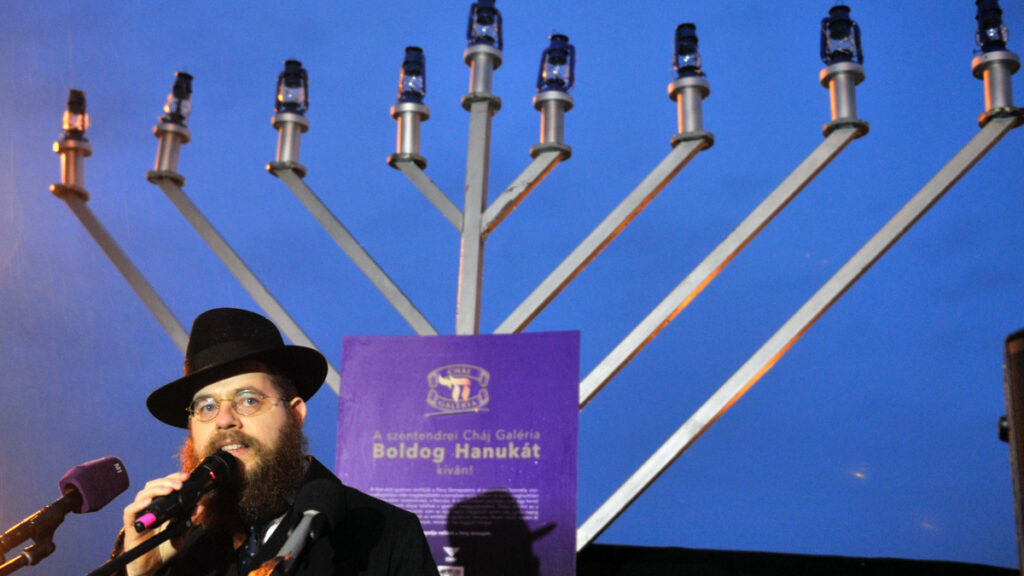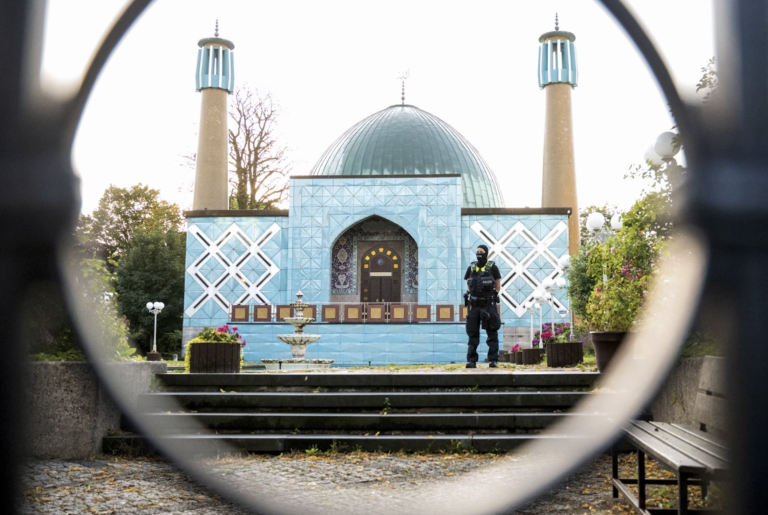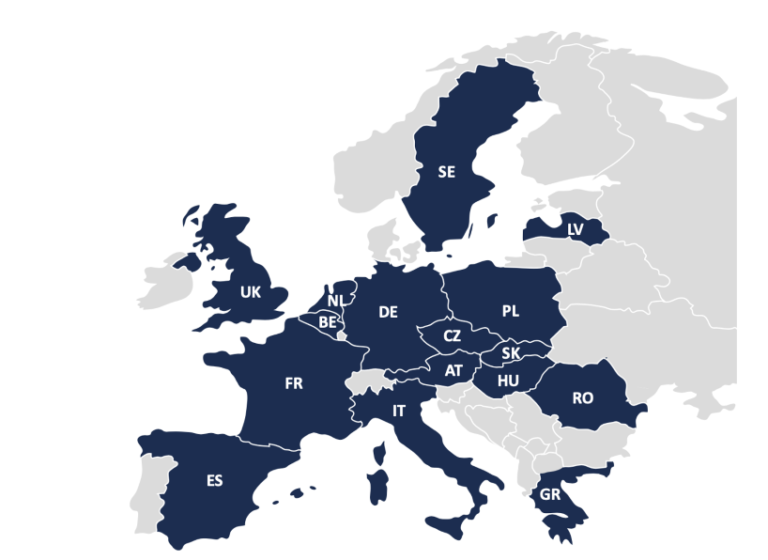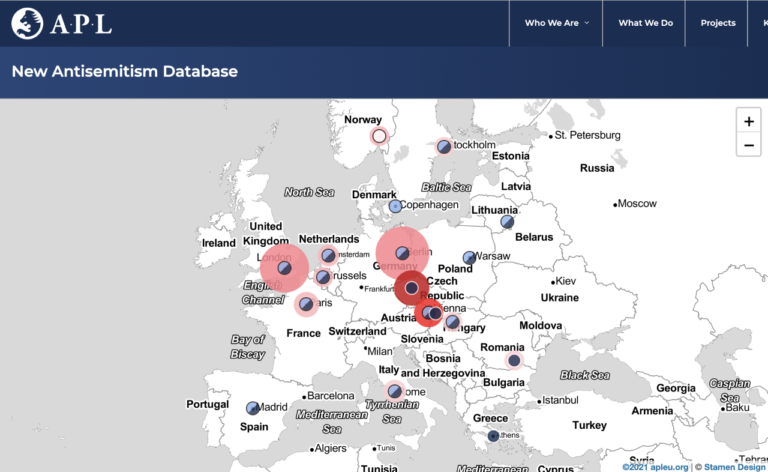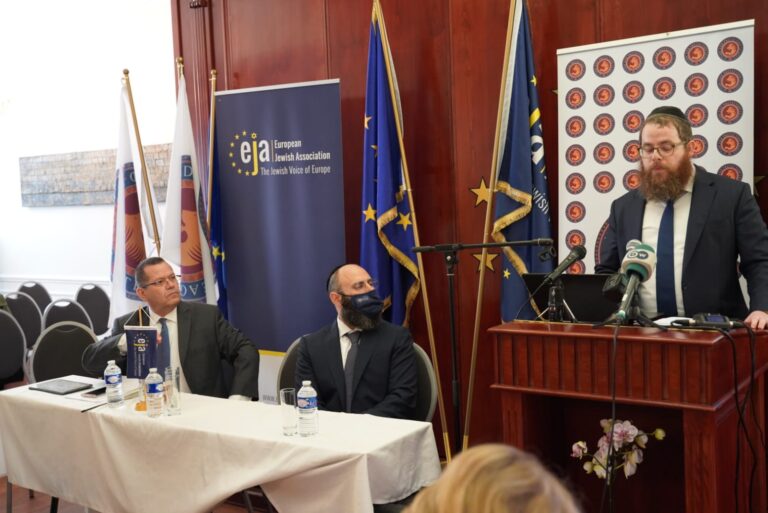Apropos of the starting of the Hannukah festival, the Mandiner news portal interviewed the leading rabbi of EMIH, Slomo Koves.
Slomo Koves claims that there is a kind of opinion-dictatorship, which tries to render impossible the experiencing of decades, millennia of traditions and religious values. The interview also covered the findings of the prejudice research conducted by the Action and Protection League.
The Jewish community celebrates the Festival of Lights, the Hannukah between November 28 and December 6. The Hungarian Jewish Association, EMIH, lights a candle every day for eight days on their hanukias set up at public squares at numerous locations in the capital and in the provinces,
“The lighting of candles is not only the natural part of Budapest views, but also of the holiday season, and majority society acknowledges it as well. Regarding the public experiencing of the Jewish identity, this is one of the major successes of the past thirty years, as it is important for us that the Jewish identity is not only experienced merely through the sense of common destiny, but also through community events and religion,” said Slomo in the interview with Mandiner.
The rabbi recalled that when they first put up a Hannukah menorah at a public place, many did not even know what it was. The Jewish leaders of the time were afraid of antisemitic reactions. Today, many people know something about the festival, and national leaders send their good wishes on this occasion. Slomo Koves believes this is a major progress.
It is easier for the religious part of the majority society to establish an active relationship with the Jewish community if Jews openly practice their traditions and religion, which has many common features and values with Christianity. In this regard, the experiencing openly the Hanukah tradition in Hungary has a crucial role.
Misleading highlight by Telex
“Hungary is among the top in antisemitism, national anti-Jewish notion matches that of the Muslims in Western-Europe” – this was the title of the Telex article about the Europe-wide research of the Action and Protection League founded by Köves Slomó. The research was sponsored by the Hungarian government. According to the leading rabbi, this title is misleading, because it doesn’t reflect correctly the most important observations of the innovative survey. Moreover, the statement in the puffed-up title is not well-founded.
“It is unprofessional to compare the prejudice of Western-European Muslims and Hungarians, because there is no official record of the religion of the population in European countries, so the image of the self-admitted Muslim participants of the APL survey is not representative to the entirety of Western-European Muslims. Not to mention that extremist Muslims who are dangerous to the Jewish community are not likely to take part in such a survey.”
The rabbi explained that the survey covered sixteen European countries, and they compared the results with two other indexes, the number of antisemitic assaults and the results of earlier surveys about how safe Jews perceive their countries. The stunning result of the survey was that there is no correlation between the prejudice of the majority society and the safety of the Jewish community. For example, there is significantly less antisemitic sentiment in Western-European societies compared to Eastern-European countries, yet there are 10-15 times more atrocities in the former.
Hungary is the only EU member state where the perceived safety of the Jewish community has improved in the past ten years, while regarding anti-Jewish prejudice, it is among the first 5-6 countries.
Slomo Koves believes that the question of antisemitism is best approached in view of the safety of Jewish communities. He believes that it is outright harmful to take something out of context from such a complex survey and use it as a clickbait or even a political weapon.
The European research is an important step towards defining country-specific tools to fight antisemitism. A different approach is required when antisemitism is a security-policy problem, and when it is rather present on the level of sentiment.
You can read the full article in Hungarian on mandiner.hu!
